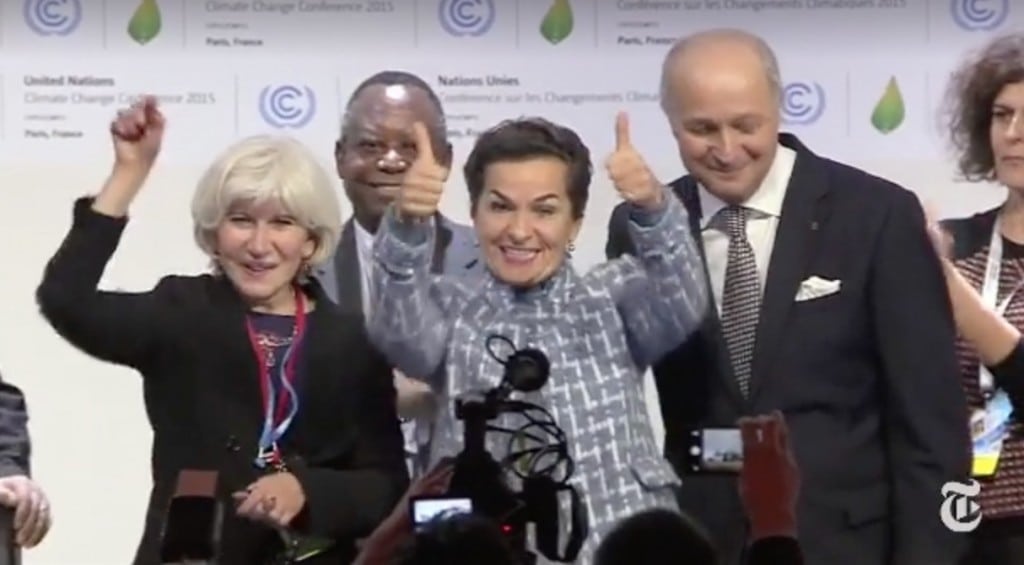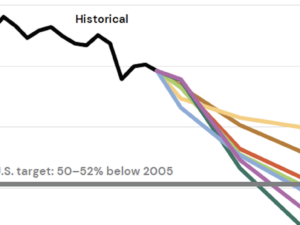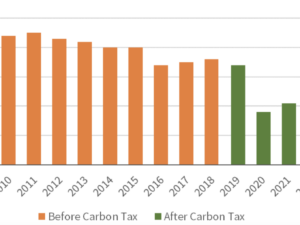By Mark Reynolds
After decades of contentious and often acrimonious negotiations, the nations of the world have come together with an agreement that places our civilization on a path toward avoiding the worst effects of climate change.
The Paris accord is one of those rare moments when every nation acknowledges that, for the good of all, we must act as one.
“It was a wonderful surprise that after the incredible disappointment of Copenhagen, these 195 countries could come to an agreement more ambitious than anyone imagined,” said Jim Yong Kim, the World Bank president, “This never happens.”
The ambition Kim refers to is the goal of not only staying under 2 degrees Celsius of warming since the Industrial Revolution, but working toward limiting warming to 1.5 C. The lower target is viewed as essential for the survival of low-lying island nations already disappearing from sea-level rise and for avoiding some of the worst consequences of climate change – worsening storms, food shortages, mass migrations.
President Obama was not exaggerating when he hailed the Paris agreement as “a turning point for the world,” saying that it “establishes the enduring framework the world needs to solve the climate crisis.”
As organizers of the Paris conference will be the first to admit, the commitments made by nations to reduce greenhouse gas emissions will be insufficient to prevent global warming from exceeding the 2 C warming threshold, let alone 1.5 C. For that reason, the agreement calls for nations to revisit their commitments every five years, with the expectation that national goals will be made increasingly ambitious.
Leadership from the United States is needed to marshal global efforts against carbon pollution. Right now, unfortunately, that leadership is less than inspiring.
Forced by a recalcitrant Congress to take matters into his own hands, President Obama initiated the Clean Power Plan, which uses Environmental Protection Agency regulations to reduce carbon dioxide emissions at power plants. The EPA rules have met with stiff opposition from congressional Republicans, and both the House and the Senate have passed resolutions of disapproval under the Congressional Review Act.
But instead of just saying “no” to the Clean Power Plan, Republicans could offer a market-based alternative that would eliminate the need for EPA regulations. By placing a fee on carbon and returning the revenue to American households, we can incentivize a clean-energy economy without increasing the size of government. Meanwhile, applying border tariffs to imports from nations that lack an equivalent price on carbon will protect American businesses and provide the incentive for all nations to establish a price on carbon — the single biggest step a country can take to meet its climate goals.
A study released last year from Regional Economic Models, Inc. (REMI), confirms that this solution, known as Carbon Fee and Dividend, would achieve the necessary reductions in greenhouse gas emissions while also benefitting the economy. REMI analyzed a fee on fossil fuels, starting at $10 per ton of CO2 and rising $10 per ton annually. After 20 years, CO2 emissions would fall 50 percent and 2.8 million jobs would be added, primarily because of the stimulus of recycling the carbon fee revenue back into the economy.
Those who scoff at the notion of Republicans considering legislation to price carbon may have missed a couple of recent developments:
- North Dakota Republican Congressman Kevin Cramer recently floated the idea of swapping out EPA climate regulations with a carbon tax.
- Twelve House Republicans have sponsored a resolution acknowledging the threat of climate change and calling upon Congress to work on solutions.
Congressional opponents have said the U.S. should not act on climate change for two principal reasons: It won’t make any difference if the U.S. acts alone, and measures to cut carbon will kill jobs. But neither excuse is valid any longer — the Paris accord ensures that the U.S. will not be acting alone, while the REMI study demonstrates the positive effects a well-designed carbon price would have on the American economy.
The world has taken a great step toward leaving a livable world for future generations. Leadership from the U.S. in the form of a market-based climate solution can ensure that the promises of Paris are kept.
Mark Reynolds is Executive Director of Citizens’ Climate Lobby.






